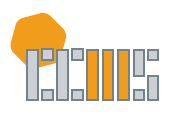Abstract / Synopsis
Although much creativity research has suggested that creativity is influenced by cultural and social factors, these have been minimally explored in the context of mathematics and mathematics learning. This problematically limits who is seen as mathematically creative and who can enter the discipline of mathematics. This paper proposes a framework of creativity that is based in what it means to know or do mathematics and accepts that creativity is something that can be nurtured in all students. Prominent mathematical epistemologies held since the beginning of the twentieth century in the Western mathematics tradition have different implications for promoting creativity in the mathematics classroom, with fallibilist and social constructivist perspectives arguably being most conducive for conceiving of creativity as a type of action for all students. Thus, this paper proposes a framework of creative mathematical action that is based in these epistemologies and explains key aspects of the framework by drawing connections between it and research in the field of creativity.
DOI
10.5642/jhummath.202002.04
Recommended Citation
Meghan Riling, "Recognizing Mathematics Students as Creative: Mathematical Creativity as Community-Based and Possibility-Expanding," Journal of Humanistic Mathematics, Volume 10 Issue 2 (July 2020), pages 6-39. DOI: 10.5642/jhummath.202002.04. Available at: https://scholarship.claremont.edu/jhm/vol10/iss2/4
Terms of Use & License Information
Included in
Epistemology Commons, Logic and Foundations of Mathematics Commons, Science and Mathematics Education Commons
